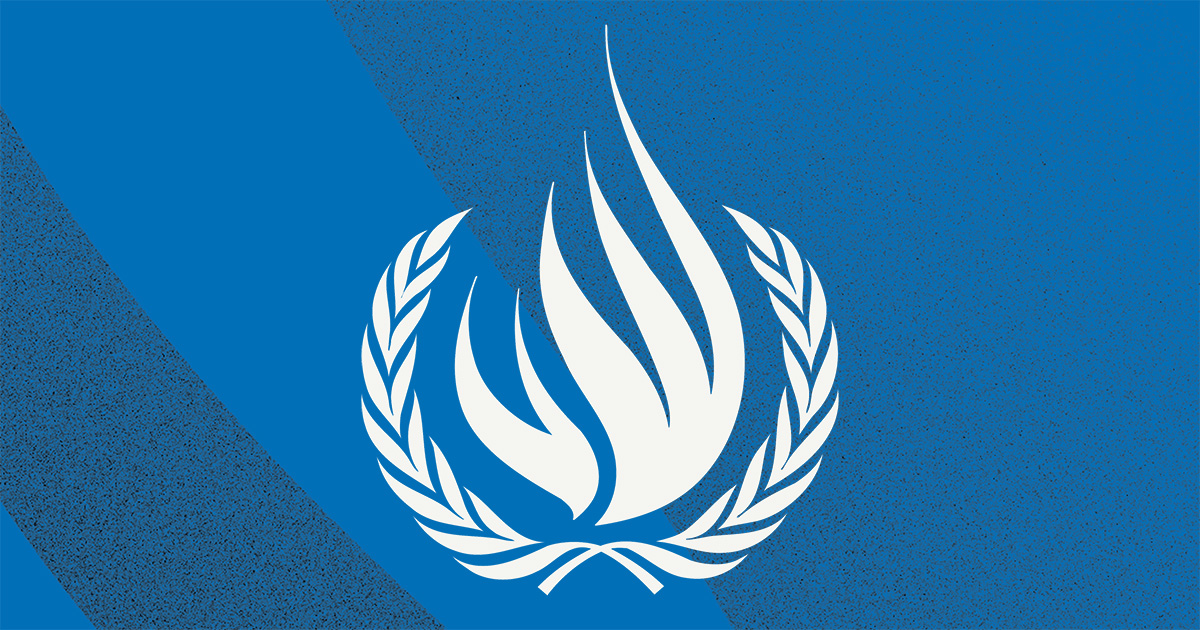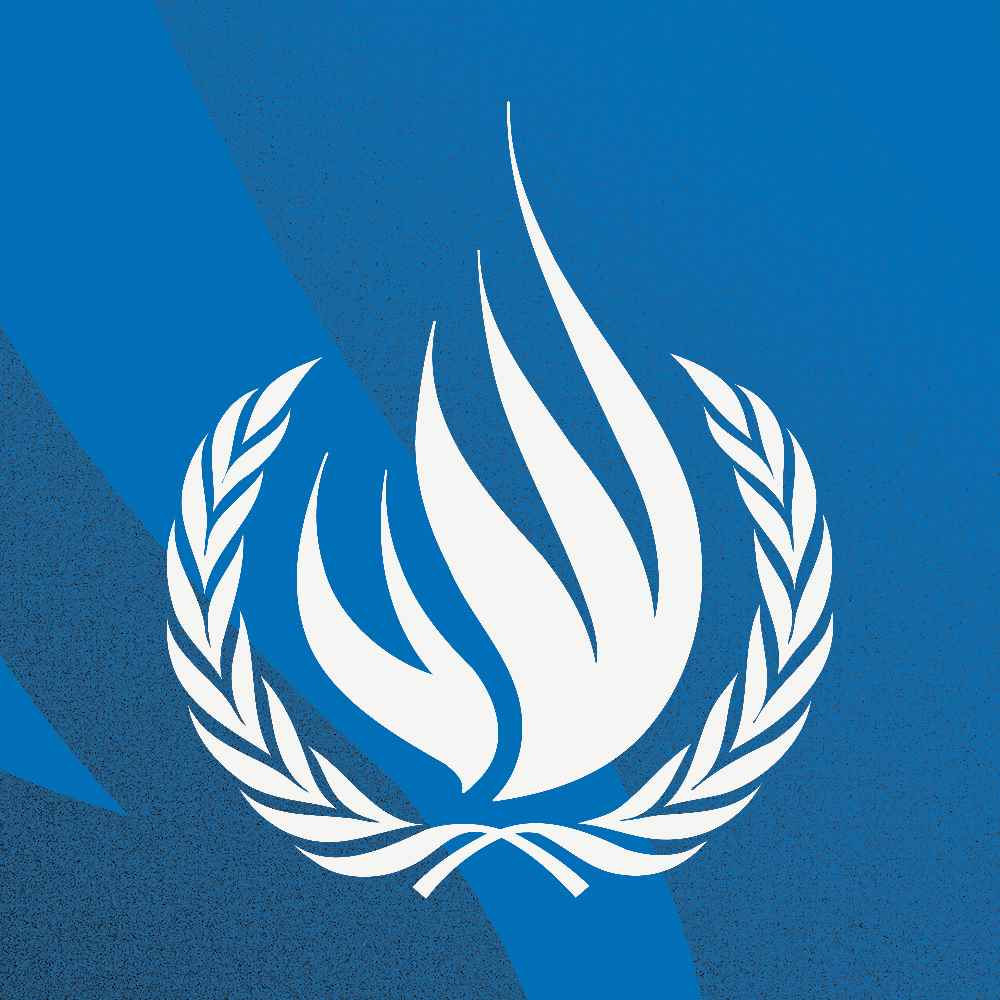
The Committee on Migrant Workers today marked the launch of its fifth General Comment, on migrants’ rights to liberty and freedom from arbitrary detention, with a public online interactive dialogue.
Can Ünver, Committee Chair, made opening remarks, as did Committee Vice-Chair Álvaro Botero Navarro.
Abdul Aziz Muhamat, Advocate for the Rights of Refugees, Asylum Seekers, and Migrants in Detention, Community Detention, and Post Resettlement at the Global Detention Project, told the Committee that when people were detained, they were dehumanized; detention centers were no way to deal with migration.
Sulma Franco, Detention Program Organizer at Grassroots Leadership, said that after she had left a detention centre, her life had not been the same. The trauma of the experience haunted people who had been held in detention centres.
In their presentation of key concerns, main findings and recommendations, Mr. Botero Navarro said that with its General Comment, the Committee hoped to be able to contribute to the development of legal standards that could begin the disestablishment of migrant detention. Committee Vice-Chair Fatima Diallo added that States had an obligation to think of alternatives to detention before imposing it in each individual case.
Opening the panel discussion, Michael Flynn, Executive Director of the Global Detention Project, told the Committee that the effort by many States to export immigration and asylum procedures to other countries broadened the geographic relevance of the Convention. Vincent Chetail, Professor of International Law at the Graduate Institute, Director of the Global Migration Centre, and President of the Board of the Geneva Academy, noted that the General Comment contained provisions that were a progressive development of international law, and could guide future international law on the topic. Felipe Gonzales Morales, Special Rapporteur on the Human Rights of Migrants, noted that the General Comment established very clearly that all forms of deprivation of liberty constituted detention, which was important as States often used euphemisms to describe their practices.
In the ensuing discussion, speakers observed that it was essential to broadly disseminate the General Comment to people who would be able to put it into practical use, be they national human rights institutions, members of civil society, or even staff working directly with migrant workers.
In conclusion, Mr. Botero Navarro underscored that mass incarceration of people who were simply looking for a better life had to stop. Migrants were rights-holders. Mr. Ünver, for his part, noted that October 7 was the world day of decent work. All human beings deserved decency, and all migrants were human beings.
All documents relating to the Committee’s work, including reports submitted by States parties, are available on the session webpage. The webcast of the Committee’s public meetings can be accessed at http://webtv.un.org/.
The Committee will next meet in public on Friday, 8 October at 5:30 p.m. to formally close its thirty-third session.
Opening remarks
CAN ÜNVER, Committee Chairperson, said the General Comment provided authoritative interpretations of articles 16 and 17, and other articles, of the Convention in the context of the rising trend toward criminalization of migration and increasing practice of detention of migrants. The General Comment intended to provide guidance to States in relation to the rights of all migrant workers and members of their families against arbitrary detention.
Álvaro BOTERO NAVARRO, Committee Vice-Chair, said that it was thanks to States, civil society organizations, academics, international organizations and migrants and their families which had made the General Comment possible. With the present document, the Committee was re-launching itself on a solid footing. Thanking all stakeholders who had supported the process, he noted that the Committee had received over 100 submissions from around the world.
Abdul Aziz Muhamat, Advocate for the Rights of Refugees, Asylum Seekers, and Migrants in Detention, Community Detention, and Post Resettlement at the Global Detention Project, said that as a migrant and former detainee, he believed the General Comment could remind States of their international obligations. He had spent six and a half years in a detention center with no clear future, and no hope for the next day to participate in society, he said. However, while in detention, he had continued advocating for himself and other detainees on Manus Island. When people were detained, they were dehumanized. “When you are in a detention center, you don’t have a voice,” he said. But there was no shame in being a migrant. Detention centers were no way to deal with migration.
Sulma Franco, Detention Program Organizer at Grassroots Leadership, described how she had suffered in a migrant detention center after finding herself forced to migrate toward the United States. Being a migrant was an ongoing life of a lack of privilege; racism strongly affected migrants. After leaving the detention centre, her life was not the same, she said, and the trauma had been difficult to handle. People who left detention didn’t think “hurray, now I am free,” she said; the trauma haunted them. She still had no papers after 10 years, and still feared being rearrested, she said. She appealed to those in power to end the years of suffering for future generations. The fight was not over.
Presentation by Committee Members of Key Concerns, Main Findings, and Recommendations
Álvaro Botero Navarro, Committee Vice-Chair, said migrant detention affected and damaged the lives of millions of people throughout the world. One of the central messages of the General Comment was that States parties and all persons involved in that terrible practice had to take measures to abolish migrant detention. The Committee hoped to be able to contribute to the development of legal standards that could begin the disestablishment of migrant detention. The clear message of the Committee was that under international human rights law, States had an obligation not to criminalize migration. Over the last decades, the Committee had observed with concern the rising involvement and influence of private prison corporations in immigration enforcement, alongside the expansion of immigration detention systems. The prohibition on arbitrary detention was absolute; any use of detention had to be based on a legitimate State objective and be a measure of last resort.
Fatima Diallo, Committee Vice-Chair, noted that States had an obligation to think of alternatives to detention before imposing it in each individual case. Alternative measures to detention took into account community measures or programmes that were less restrictive than detention. A large number of non-custodial measures were excessively restrictive and not appropriate in the context of migration. Due to the risk of spread of COVID-19, non-custodial measures were even more important. Detention should not be indefinite, as it would then become arbitrary. Migrants faced many barriers to access to justice; it was the responsibility of States parties to ensure they could access justice. The right to assistance and consular protection was vital to ensuring migrant workers had access to justice, and particularly urgent when people were deprived of their liberty. States must always allow civil society organizations to conduct their work unrestricted, she underscored.
Panel Discussion-Opening Remarks
Michael Flynn, Executive Director of the Global Detention Project, congratulated the Committee on producing its General Comment, which arrived at a crucial time when the rights of people crossing borders was being violated around the globe. The effort by many States to export immigration and asylum procedures to other countries broadened the geographic relevance of the Convention. The standard-setting role of the General Comment was important.
Vincent Chetail, Professor of International Law at the Graduate Institute, Director of the Global Migration Centre, and President of the Board of the Geneva Academy, said too many States were using immigration detention as a tool of deterrence, without regard to the basic dignity of migrants and international human rights law. The system was exploitative, ineffective, unjust and dehumanizing. The General Comment contained provisions that were a progressive development of international law, and could guide future international law on the topic.
Felipe Gonzalez Morales, Special Rapporteur on the Human Rights of Migrants, said the General Comment established very clearly that all forms of deprivation of liberty constituted detention, which was important as States often used euphemisms to describe their practices. Migrants without access to justice risked remaining in detention for long periods. Independent monitoring of conditions of detention by observers was essential, as was access to information for civil society and national human rights institutions.
Discussion
In the ensuing discussion, speakers said that sometimes, discussions on migration lost their human rights-based focus, and the General Comment was important as it underscored the principle of liberty. Others remarked that specific, damaging migration policies should be publicly identified as such. Conditions in detention centers often gave rise to human rights violations in fields ranging from the right to food to the right to freedom of belief of religion, it was noted. National human rights institutions should take on board the General Comment and use it in their work.
Coercive measures, which were ineffective and inefficient, were very costly in terms of human lives, it was said. The Committee’s focus and central theme was on migrant workers and members of their families, and the Convention would only gain in relevance in the future. National human rights institutions could use the General Comment in their work alongside other human rights instruments, such as the Optional Protocol to the Convention Against Torture. Its publication was an opportunity to highlight to States Parties the importance of working with civil society, another speaker added.
Closing remarks
Álvaro Botero Navarro, Committee Vice-Chair, said he hoped the General Comment would bring a modicum of justice to people suffering the injustice of being detained for their migration status. The detention of migrants was one of the most reprehensible actions of society today. Persons in detention centers in many parts of the world were often the most vulnerable people. There was mass incarceration of people who were simply looking for a better life; that had to stop. Migrants were rights-holders. A colossal challenge lay ahead in protecting the rights of migrants, and the Committee had to keep standards high, using the Convention to protect the rights of migrants. The General Comment should be used in practical terms, and for that to be achieved, people working with migrants needed to know about it.
CAN ÜNVER, Committee Chairperson, thanked all participants for their substantive contributions to the discussion that had been held. It was inspiring for the work of the Committee. He reiterated his call for a broad ratification of the Convention, noting that today, October 7, was the world day of decent work. All human beings deserved decency, and all migrants were human beings.
Link: https://www.ungeneva.org/en/news-media/meeting-summary/2021/10/committee-migrant-workers-launches-general-comment-migrants








